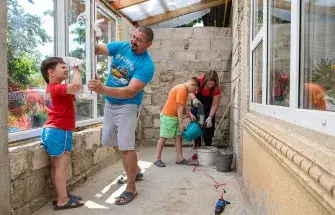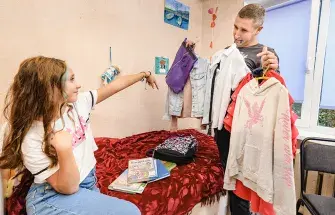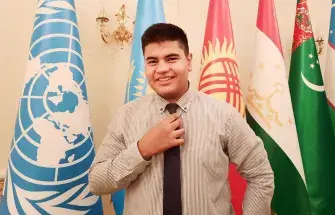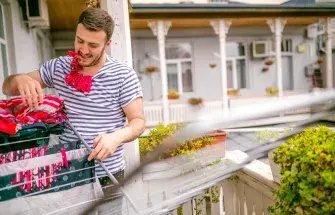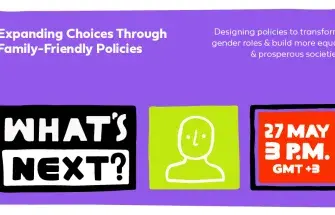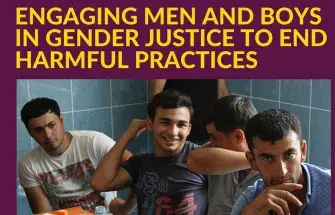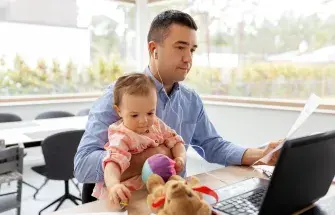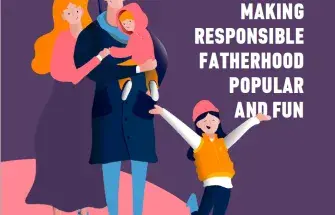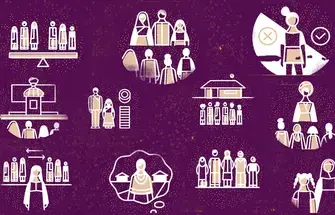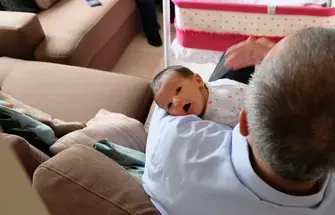As the stage lights up, a narrator's voice announces the start of “Yellow Boots”, a theatrical play supported by Bosnia and Herzegovina’s UNFPA country office. UNFPA has a history of supporting programs that promote transformative gender roles. In this unique program, the audience is expected to participate and reflect, since the play is intended to address gender inequality and stigmatization of survivors in conflict-related sexual violence.
Amongst the actors is youth leader, Djordje Mirkovic, 20. An activist in his own right, he helps produce these plays with a clear understanding of the UNFPA mission and the impact of “Yellow Boots”. We spoke to Djordje about gender roles and using art as a medium for social change.
Q: Can you tell us a little bit about the issue of gender equality in your country? What are some of the challenges?
A: Gender inequality is a major issue in our country, and I think the persistence of the issue maybe has its roots in how the topic is perceived and discussed by the people. From an early age, through parents and school, but also through different cultural influences children are taught that gender stereotypes are perfectly acceptable.
And when young girls are raised believing that they are inherently inferior to men, this hinders their growth and severely limits the opportunities that they might otherwise pursue, such as education. It does not help that the success of a woman is often downplayed compared to a man with the same achievements. This creates a discouraging feedback loop, leading women to feel that their efforts will go to waste because they will never measure up to the ideal that is “man”.
Q: Are you working for an organization that does theater or is this a project you started yourself?
A: The project I’m working on is organized and implemented by UNFPA Bosnia and Herzegovina. We developed a social-change theatre piece, primarily focusing on the attitudes of today's society towards survivors of conflict-related sexual violence.
Q: What inspired you to come work on this project? Why are you doing this?
A: My high school theater teacher often said that during a performance, the theater is like a classroom, and that the actors are teachers, and the audience students. However, through “teaching” the audience, we as actors are also able to learn. That is why I got involved in this project. The play is a tool that is used to tell the audience a new story, and to help get them to think differently about these topics. My involvement might be small in teaching others, but it is something, and telling these stories is also an opportunity for me personally to learn more.
Q: What activities do you do in the theater? Who is involved in the plays? What is your audience?
A: I have been doing forum theatre plays on various topics since starting high school. We mostly worked on plays where the main goal was to make the audience think about how their own personal actions could be crucial for stopping or preventing peer violence, sexual violence, changing our society's views about gender equality, etc.
To help make this play interesting and understandable for the audience, a combination of forum theatre, drama theatre, expressive theatre and physical theatre is used. The complete script is based on real testimonies of the victims. All the actors and actresses, as well as our director are young people aged 18 to 30. We have presented the play to numerous audiences, but one of the performances that stuck with me was for the teachers from Sarajevo Canton. After the play we had a great discussion about what they saw and how they can teach their students about these topics and discuss the issue with youth.
Q: Has working on this project changed your views or actions on gender equality?
A: Working on this project helped me learn to be more conscious of how I act toward others, women in particular. Throughout the process I strengthened my views about gender equality, and saw examples of why this is something that we should fight for. All of my female colleagues showed me how strong they are. But more importantly, they showed me how strong all of us can be when we are united. Working with them showed me that fighting inequality should be everyone's responsibility. It helped me support every woman's success as equally as a man's.
Q: How has this changed your discussions with male peers when it comes to talking about women/girls?
A: It encouraged me to stand up to some chauvinist comments and actions I face every day from my male peers. I will often start the discussion with them and try to educate them in a constructive way, so that they perhaps start changing their attitudes.
Q: What kinds of stereotypes do you come across in your daily life? How do you actively work to combat them?
A: People often see me as a “traitor of men” because of my gender equitable views. Rather than be discouraged in my views, or embarrassed by them, I make it a point to explain and show why it is so important, so worth it, to openly fight for gender equality. I always try and lead by example, like taking part in this play.
Q: What do you think is the role of young men in achieving gender equality?
A: I think all young men should make an effort in their communities to overcome the narratives of the traditional male and female roles in our society. We need to start with changing ourselves, and then work actively in fields of our interests to promote gender equality as much as possible.

